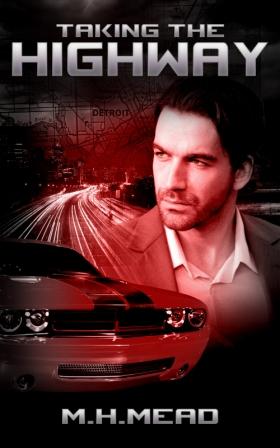
Everyone thinks it’s cool to have a published writer in their book club. That is, until they try it. I’ve been invited into countless book clubs, and actually joined a few of them. I always dropped out at the first opportunity.
Why? Because writers ruin it for everyone.
The first problem is that we’re so darned picky. It’s the great irony of our profession. All writers started writing because we love books so much. But the more we write, the less we like what we read.
At book club, I was the Debbie Downer who sucked the fun out of every story with her unending criticism. I’m sure I was only criticizing the books, not the people who chose them. I am equally sure that it didn’t feel that way to the people on the receiving end.
The second problem is even worse. No matter how much we adore a novel, we always see the support structure. Readers only see the graceful dancing marionette. Writers see the exact place the strings are attached to the puppeteer’s fingers. We can’t help it. Once we learn the tricks, we can’t unlearn them. Worse, we can’t stop talking about them.
I remember one night at book club when my friend mentioned her shock at Dumbledore’s death in the Harry Potter book. “What?” I screeched. I may have even banged on the table a little bit. “He’s the mentor character. The mentor always dies!” I looked around the room at eight blank faces. These were super smart, very educated women who read all the time. How could they not know this?
They did not know this because it is outside their experience. They are top-notch readers. They understand books. They’ve just never written one.
Readers see novels from the inside out. Do I like this character? Can I relate to the situation? Does the story move me? Writers see novels from the outside in. Are the plot points in the right place? How does the author show character growth? Are the stakes high enough?

Regarding the eight blank faces at book club, I tried to explain. I talked about Obi-wan Kenobi, Mickey the trainer from Rocky, and Mufasa from The Lion King. The mentor dies in the middle of every coming-of-age story. But that’s a good thing. It allows the hero to grow up. The blank expressions turned to understanding.
A few people shifted uncomfortably in their chairs. Someone changed the subject. Someone else gave me a dirty look. They would never be surprised by this particular plot twist again, and it was all my fault.
I ruined my next book club at the very first meeting. The evening started well. Wine and conversation flowed easily. I liked these women, and they liked me.
Everything was going great until, once again, someone mentioned her surprise at the death of a character. Not a mentor this time, but a lovable minor character (another fictional type with a short life expectancy). “But Fred had to die in that scene,” I piped up. “Otherwise, the reader wouldn’t understand how dangerous the situation really was. When the hero is in the same situation later, you should feel death in the air.”
As soon as the words left my mouth, I regretted them. I was met with the same blank stares followed by hostile murmurs. “But I liked Fred,” someone said in a small voice. I liked Fred, too. I didn’t want the character to die. But I understood why he had to. I’m not heartless. I’m just a writer.
And you do not want me in your book club.

Guest post by Margaret Yang: You Don’t Want Me In Your Book Club

9 Comments
Lara Zielin
Wait, Dumbledore dies? Just kidding! It’s a testament to what a great writer Margaret is that she sees book structure so clearly — even in the novels she doesn’t write. I don’t see the construction this well, and I wish I did. That said, I’m happily ensconced in a really great book club. : )
Den Hoopingarner
Dumbledore isn’t dead; he was spotted working in a Burger King in Kalamazoo.
Lady E
The comic sidekick always dies. The cop who is in his last week of the job before retirement always dies. The black best friend gets wounded, but pulls through.
Amanda C. Davis
I can never watch a movie with my mother again, after I correctly predicted every detail of a five-minute scene in a SyFy original, just by noting what elements were in play at the time.
fpdorchak
Margaret, with all due respect, I know where you’re coming from, but I really feel I have to say this (debated about not posting it): sometimes the mark of a professional is to show restraint. Just because WE know things, does not mean we have to ruin the journey for others. Book clubs love commiseration. Warm and comfy. Kaffeeklatschee. They don’t need someone spoiling their magic. They don’t have a “need to know”…they just want a warm, emotional bonding experience with others of like interests, away from the sometimes harsh realities of life. Namaste.
Margaret Yang
Frank, you’re absolutely right. What I was trying to bring to the book clubs was not what they wanted out of those meetings. I couldn’t shut off my know-it-all tendencies, and I was ruining everyone’s fun. That’s why I dropped out of those clubs. I’m sure there’s a proper venue for my ideas about story structure, but a book club was not it.
fpdorchak
Hmmm…maybe you should start a WRITERS’ book club! :-]
jtebeau
Aw, poor babies have to eventually bite the apple of knowledge and put away childish thinking! It’s good for ’em. Ahh, I’m kidding. It’s fun to not know the inner workings of wonderment. Ever read Twain’s “Life on the Mississippi?” He became a river pilot because he loved the river so much. After learning the craft, the magic was gone. The river was a long, muddy series of problems with clues you had to carefully look for to avoid fracking up. The price of lost innocence! Oh well…. We can always find new things to not know. Tons of ’em.
Laura
Ah Margaret, you haven’t changed since our college days LOL.
Leave a reply